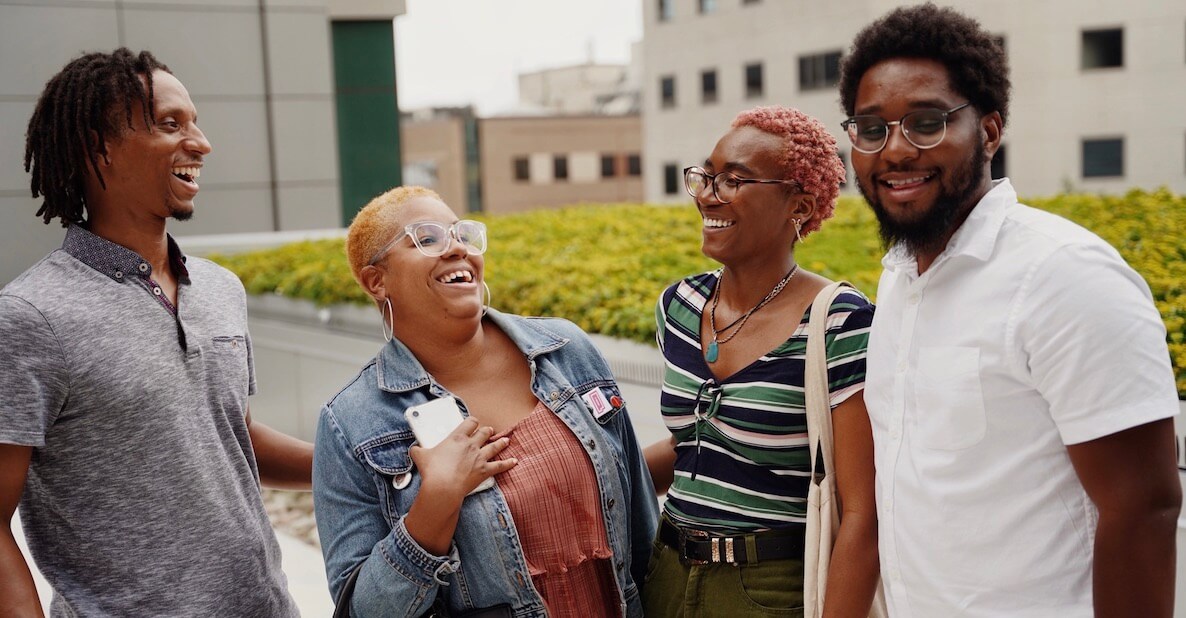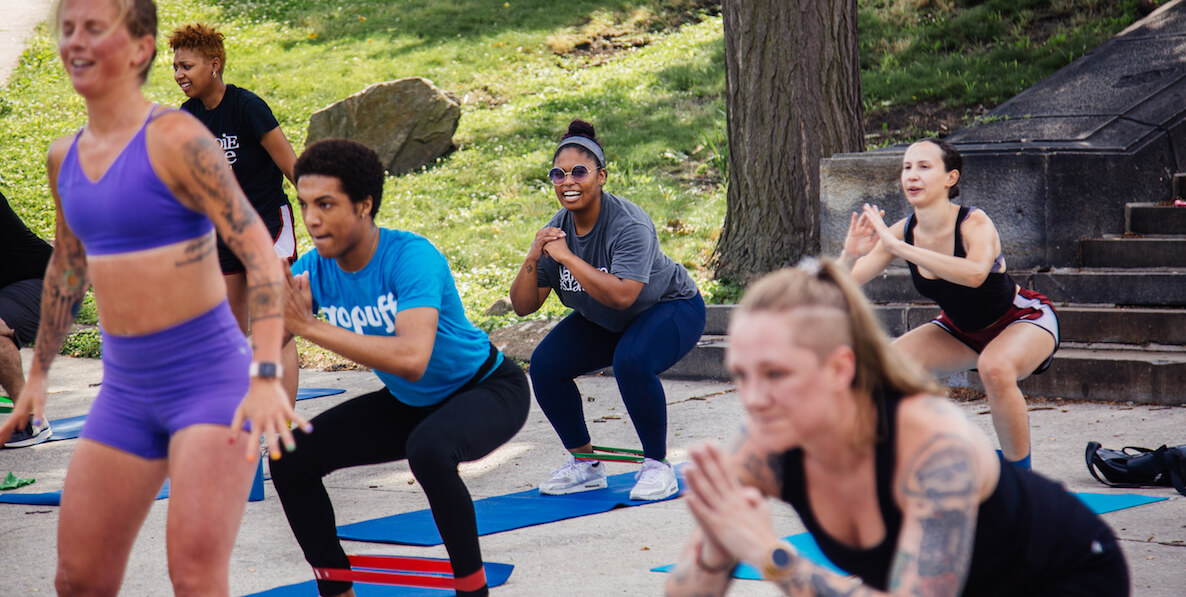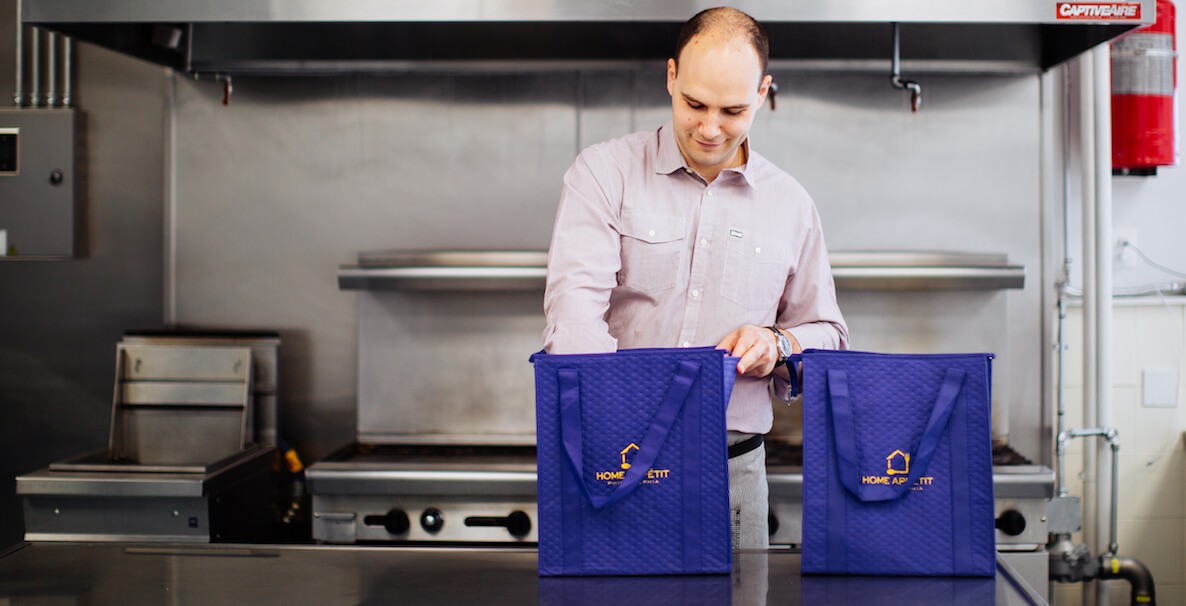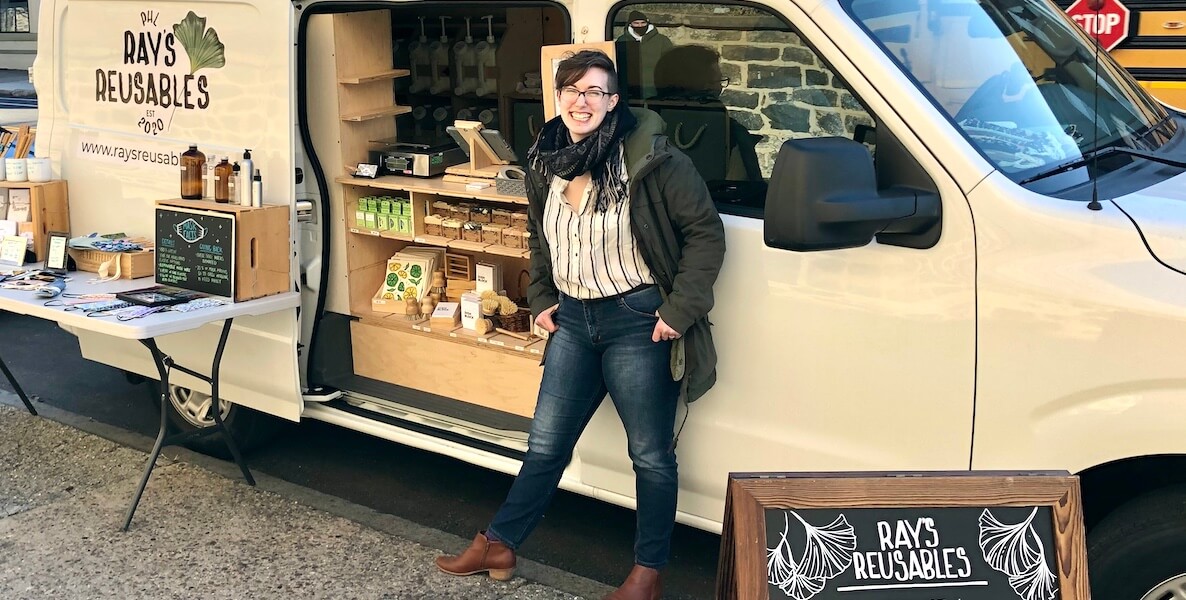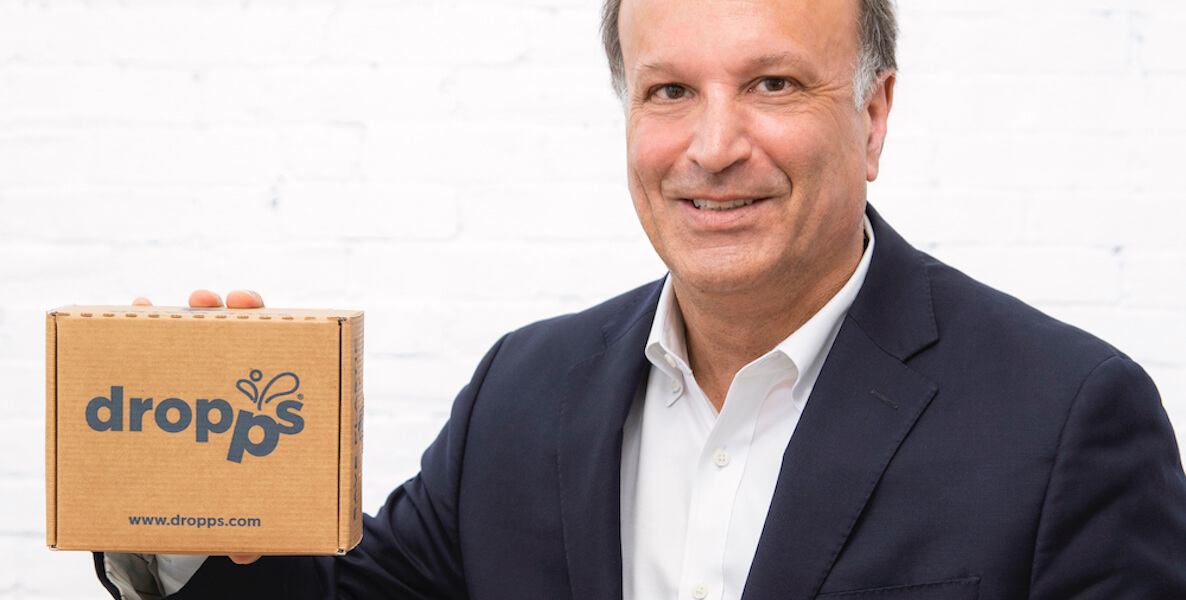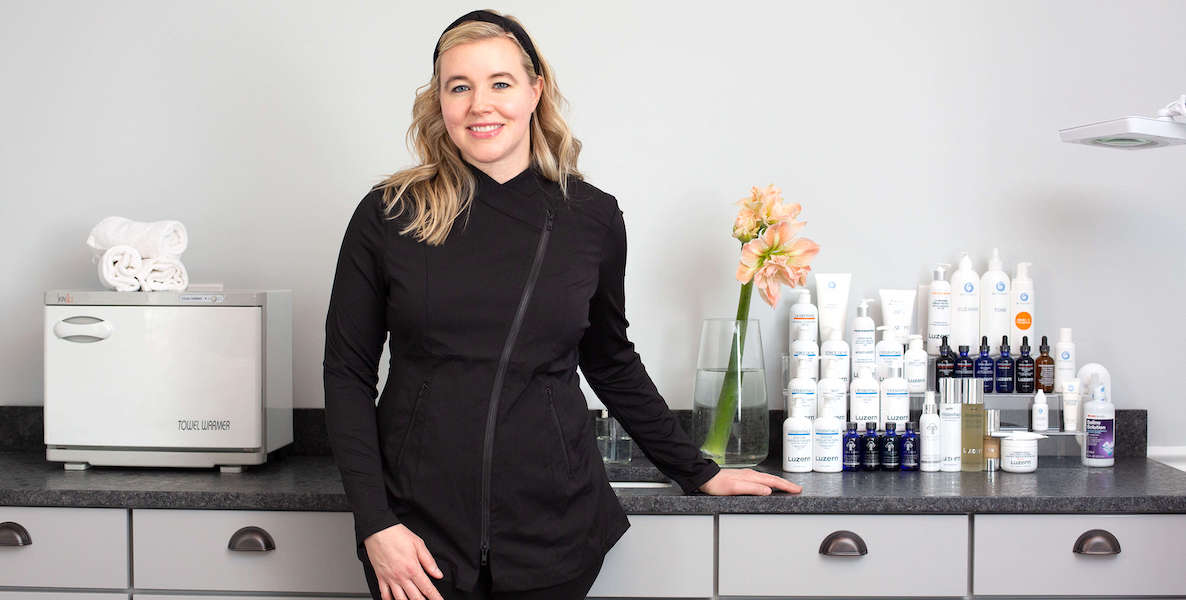The serene soundtracks. The sweet-smelling air. Gentle, calming voices, flattering lighting and zero conference calls: The world of upscale day spas seems to a casual observer like it would offer a pretty glorious working environment, doesn’t it?
Well … says Tirzah Blair, not so much. Over a couple of decades and multiple jobs as an esthetician in the day spa, medical spa and skincare industries, Blair, now the owner of Kári Skin in Old City, has seen (and lived) firsthand the particular pitfalls of the work, how a world built around making clients feel great too often seems to have the opposite effect on the professionals doing the job.
Burnout, bullying, high turnover rates, inclusivity issues: These aren’t exactly secret problems inside the beauty business (ever seen the whistle-blowing Instagram account @esteelaundry?). The issues extend to the spa and wellness industry, too, and the problem almost always comes down to culture, Blair says. Forget women supporting women: The industry has not only long tolerated bullying and “mean beauty,” she says, but has actually built business models around “a kill-or-be-killed mentality.”
“I want people to stay,” Blair says. “I want them to be able to grow their talent. I want them to be able to like what they do, buy a house, raise a family if they want. I want to create a place where they can practice their craft until they’re in their 60s, if that’s what they want.”
When she founded Kari Skin in 2020, Blair was determined to do things differently. Her salon—which won a Best of Philly award this year for its facials—is built to have a culture rooted in support rather than competition, to provide employees with opportunities to grow together and live their own balanced lives, to be inclusive and kind.
This begins with a codified commitment to no bullying, no intimidation, no discrimination. (Everyone signs contracts; to breach them is a fireable offense.) That’s just for starters, though. When Blair talks about the overall mission, she often uses the phrase “clean and connected living,” where clean refers to her eco-friendly, sustainable, nontoxic sensibility (no parabens, phenol, petroleum, phthalates, synthetic fragrances … ), and connected covers all manners of collegial relationships with and between employees, the community, the planet.
“When I wrote the mission, I was thinking of myself,” Blair says. “Where would I want to work?”
She’s doing all this because it’s the right thing to do, yes, but also because it’s what she thinks will lead to her next goal: having a sustainable, successful business with loyal talent, happy clientele and deep roots in the city. And while she’s doing those things, she’ll also be setting in motion a ripple effect that will change the way things are done in this corner of the beauty world. That’s the plan, anyway.
“What’s happening here is rare”
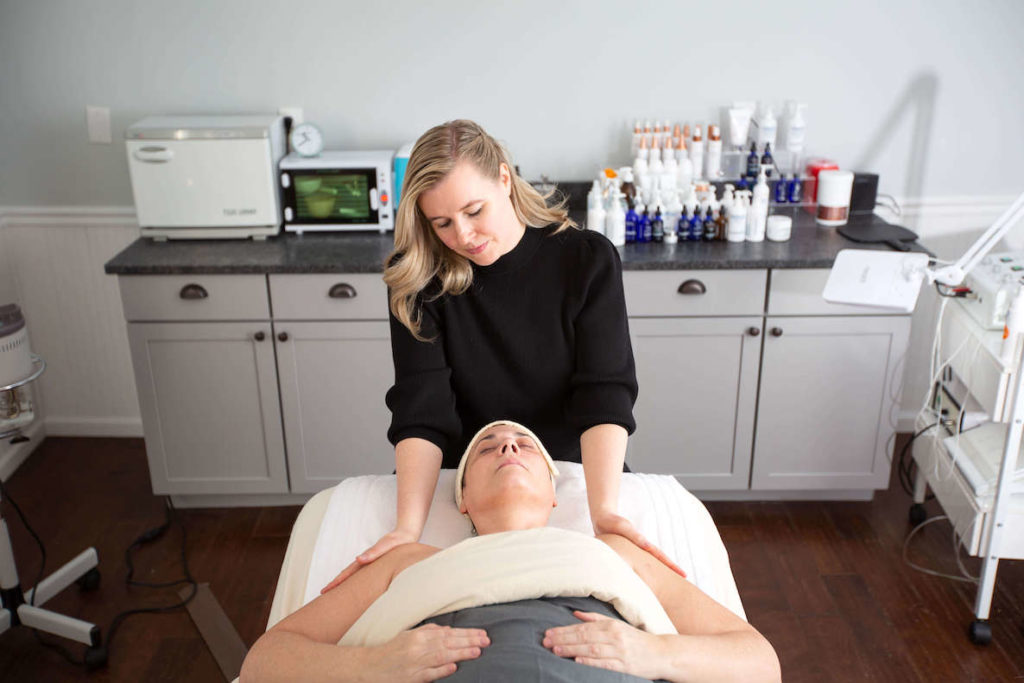
The irony of culture issues in the beauty industry goes beyond just the cognitive dissonance of ugliness in a beautiful, ostensibly female-friendly world. There’s also the idea that estheticians and masseurs are, at their core, “healers,” as Blair says. “And toxic environments don’t promote healing.”
Take, for instance, the matter of sales numbers, which are often a cutthroat part of the business by design: Weekly postings of the top and the lowest performers work as motivation for employees to sell (and upsell) more products and make more money. But the practice also drives up shaming, Blair says, as well as jealousy and “mean-girl stuff” between coworkers, berating from management, and a raft of behaviors that contribute to the negative “fear-based” vibe that permeates the industry. How negative? She’s seen race- and weight-targeting, she says, and crying, yelling, public humiliation, even physical threats.
This all seems to track: When the leading industry trade mag features stories on spa drama and how to avoid it, and begins by talking about how human nature tends toward “backstabbing, infighting, power plays, and jealousy,” you might have a serious industry-wide issue.
For Blair, the catalyst for creating something different was finally hitting her own breaking point on a job: Fed up and miserable after what she calls an extended “bullying experience” (the verbal abuse “was like psychological warfare”) from a co-worker and feeling abandoned by management, Blair quit, went home, and sat down to write the mission statement that would eventually be the foundation for Kári, her own high-end, boutique day spa centered around a culture of, yes … kindness.
MORE LOCAL BUSINESSES DOING GOOD BY EMPLOYEES
-
- Home Appétit offers delicious, healthy meal deliveries with a do-good twist
- Simply Good Jars is seeing all kinds of green after a star turn on Shark Tank
- Truth & Consequences finds big success by taking really good care of employees
- Promptworks thrives with employee- and community-focused business plan
It was January of 2020 when Blair opened up shop inside her soaring Old City space; two months later, Covid shut everything down. It felt catastrophic at the time (she credits the flexibility of her landlord for her survival). But in retrospect, Blair thinks, the “unfortunate pause” from March to August of 2020 offered a silver lining: People had a moment to think about what they wanted from work and what they wanted to change. She grew from a business of two in January 2020 to a business of five by the time she reopened in August, and from five to 12 over the past year.
One of the 12, Susan Katz, is Kári’s spa administrator. “I’ve worked at a lot of places over the years,” she says. “What’s happening here is rare. It’s people over process. It’s work-life balance. I think it really improves morale, and I think that increases our efficiency, so we’re more productive. We have that shared outcome.”
“This is part of what it takes for people to be healthy”
So what does that mean, exactly? For starters, it’s quality-of-life stuff, like 45-minute lunch breaks and mental-health days taken at will, no questions asked. There’s also 30-minute breastfeeding breaks for nursing moms, designated space (with designated fridges) and weekly well-being check-ins, Blair says, just to make sure they’re feeling okay and that the schedule is working for them.
(Most working moms anywhere, in any industry will tell you: This is not the norm.) There’s also 15-minute breaks every couple hours for pregnant employees. (And there were two pregnant employees during the pandemic; the need for policy was quickly apparent.)
The spa’s zero-tolerance policy for bullying also extends to clients, who, unlike staffers, obviously don’t sign a contract. More than once, Blair says, she’s had to let go of customers who were “verbally abusive” with staff members.
Naturally, these types of things cost money. “But I don’t fucking care,” Blair says. This is part of what it takes for people to be healthy, she says. To thrive. And, she notes, high turnover is particularly expensive in the luxury spa world, so unhappy employees aren’t just unhappy in a vacuum: It’s bad for business.
“I think when there’s an awareness that Kári is doing this, people will have to keep up,” Blair says—or else risk losing their talent. “I really think we can create a culture shift.”
“When you tolerate this behavior amongst women, it’s telling my staff You’re not valuable, you’re replaceable, and it perpetuates a culture in the spa that’s not healthy,” she says. “I want people to stay. I want them to be able to grow their talent. I want them to be able to like what they do, buy a house, raise a family if they want. I want to create a place where they can practice their craft until they’re in their 60s, if that’s what they want.”
Oh, and also: “I want my daughter to come in and see how hard we’re working with and for other women.”
Meantime, it’s worth noting that sales and growth aren’t actually so low or slow: Blair is currently building out another room to make room for a laser specialist and a plastic surgeon, who will offer new services (minimally invasive ones, Blair clarifies—not the type where you’ll be “oozing and need to heal for days”). Most team members have bumped their Covid schedules up from a day or two a week to four days a week, doubling or quadrupling their income; profits are up something like 70 percent from opening.
And it would also seem that word of the new spa is beginning getting around within the industry. “We have a backlog of résumés right now that are just amazing,” Blair says.
Creating community in unexpected ways
Of course, factoring employee contentment into a business plan isn’t exactly a revolutionary concept: Many businesses around the city and around the country are increasingly thoughtful these days about what sorts of work culture might really appeal to top talent, particularly after the great reset that was Covid. What’s interesting at Kári are the fresh ways this is all playing out, even beyond the aforementioned quality-of-work-life policies.
To create a culture of collegiality, Blair’s done things like team-building days and an inclusivity class, led by an executive coach who also happens to be a wellness advocate. (Hey, this is the spa industry.) Inclusivity is a priority here, too, in part because, yes, it easily falls under the umbrella of anti-bullying, but also because she has a diverse staff and an extremely diverse clientele, and because of how the beauty world is finally beginning to catch up to the ways in which the industry has so long left out Black and dark-skinned women.
“We’ve been trying to tackle that,” she says. “I’ve called all the companies whose products don’t have a color tone beyond medium, or whose products leave that white residue. I tell them simply we have a clientele who’s diverse, and if they can’t cater to us, I have to discontinue our use of their lines unless they can offer help.” She’s hired a “beauty scout” to help her choose the best minority-owned luxury product lines already out there.
Blair also offers every employee a handful of spa gift cards to give away to the “community leaders” who inspire them. Like most of Blair’s ideas, this one works on a few levels: Firstly, it allows everyone who works at Kári the opportunity to be generous with their time and talents and space in a way non-owners rarely get the freedom to be. On another front, it’s a great way to connect with people in the community, Blair says. (Bonus: It’s not terrible marketing, either.)
“What’s happening here is rare. It’s people over process. It’s work-life balance. I think it really improves morale, and I think that increases our efficiency, so we’re more productive. We have that shared outcome.”
In fact, the practice of bringing in inspiring and/or deserving clients ended up giving rise to the Kári Skin Alliance program, which offers discounts to other values-aligned, female-run spots. Each employee at Kári was allowed to extend the Alliance invite to one enterprise of her choice; today, affiliates include Marsh + Mane, the Asian Arts Initiative; Kith & Kin, the indoor family play space; Fishtails Animal Rescue, and more, including a burgeoning partnership with the non-profit BirthQueen aimed at serving Black doulas in the Philly area.
This is all a part of what one current Kári employee describes as Blair’s gift “for creating community in unexpected ways,” as is a small collaboration with Philebrity and civic hero Terrill Haigler, a.k.a. Ya Fave Trashman, whom Blair asked to visit her team to do some teaching about what is and what is not recyclable, what to rinse, and so forth. Then again, maybe it’s not so unexpected: Connected and clean, remember? Eco-friendly is part of the mission.
If all of this seems like it’s a lot of mission for one small business (particularly a small business that doesn’t scream “mission-biz vibe”: here, the facials can run north of $200, and the products are literally some of the most exclusive in the world), well, Blair would tell you it’s simply about trying to fix what could be fixed in her industry, trying to detoxify what she can, from products to practices.
Recently, she told me, one of the high-end lines with whom she does business called her to excitedly report that they’re reformulating bottles to be all glass (thus recyclable). They’re also diversifying their color tones, she says, and she’s heartened by all this, as well as the pile of résumés that keeps growing, which feels like validation of her efforts to create a kind, happy workplace wherein people want to work. That’s the model: “a big, beautiful blooming thing that I think a lot of businesses are missing out on.”
Maybe they won’t be missing out for long, though. “I think when there’s an awareness that Kári is doing this, people will have to keep up,” she says—or else risk losing their talent. “I really think we can create a culture shift.”
RELATED



